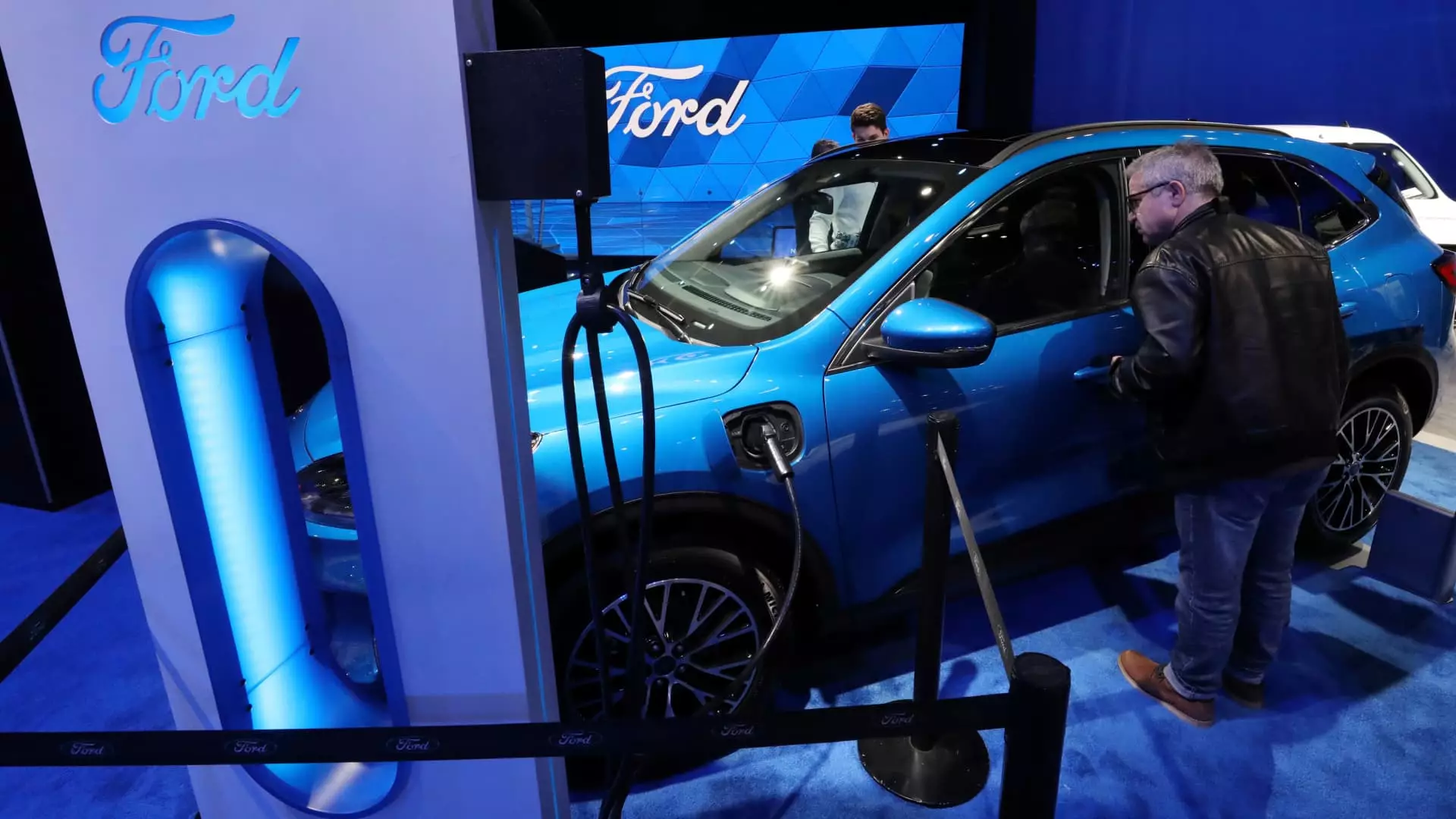In a surprising move, Ford Motor recently announced that it will be delaying the production of a new all-electric large SUV and pickup truck, as it makes a strategic shift to offer hybrid options across its entire North American lineup by 2030. This decision comes as the automotive industry continues to grapple with slower than expected adoption rates for electric vehicles (EVs) and high production costs. The postponement of the three-row SUV and pickup truck production underscores Ford’s commitment to scaling a profitable EV business and utilizing capital wisely.
The Detroit automaker revealed that it will be postponing the production of the three-row SUV at a plant in Canada to 2027, pushing it back from the initial plan of 2025. Similarly, the next-generation pickup truck, codenamed “T3,” is now slated for production in 2026, delayed from the late 2025 timeline. These delays are part of a broader strategy to navigate the changing landscape of the EV market and take advantage of emerging battery technology.
Despite being the No. 2 EV brand in the U.S., Ford still faces challenges in the electric vehicle segment. Tesla continues to dominate EV sales, with Hyundai brands like Kia and Genesis also outselling Ford in this space. The decision to delay production reflects Ford’s cautious approach to ensure that they introduce the right mix of gas, hybrid, and fully electric vehicles at the right time. The company aims to leverage the additional time to align with the evolving consumer market preferences and incorporate the latest technological advancements into its EV offerings.
Ford’s CEO, Jim Farley, emphasized the company’s commitment to building a profitable EV business while delivering a superior customer experience. The focus will remain on developing breakthrough, next-generation EVs that are fully software-enabled and offer enhanced digital experiences. Rather than transitioning existing facilities producing engine-powered vehicles to all-electric models, Ford plans to concentrate on new plants like the “BlueOval City” campus in Tennessee, which will play a key role in the production of the next-generation all-electric truck slated for 2026.
Ford’s financial performance in the EV space has been a mixed bag. While electric vehicle sales surged by 86% in the first quarter of 2024 compared to the previous year, the company’s “Model e” electric vehicle business reported significant losses, amounting to $4.7 billion in 2023. Despite the challenges, Ford remains optimistic about the future of its EV business and continues to invest in battery plants in Michigan, Tennessee, and Kentucky.
Ultimately, Ford’s decision to delay the production of new all-electric vehicles in favor of hybrid options reflects the company’s strategic realignment to meet the evolving demands of the market. The focus on profitability, innovation, and technological advancements underscores Ford’s commitment to establishing a strong presence in the electric vehicle segment while navigating the challenging landscape of the automotive industry. As the shift towards hybrid options gains momentum, Ford aims to position itself as a leading player in the electrification of the automotive sector.



Leave a Reply